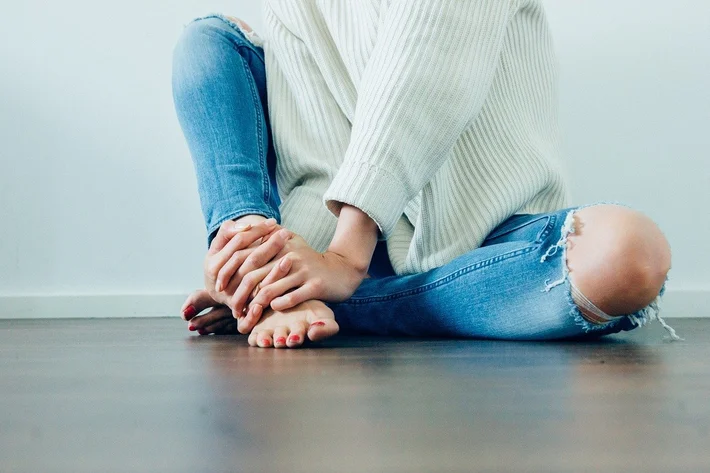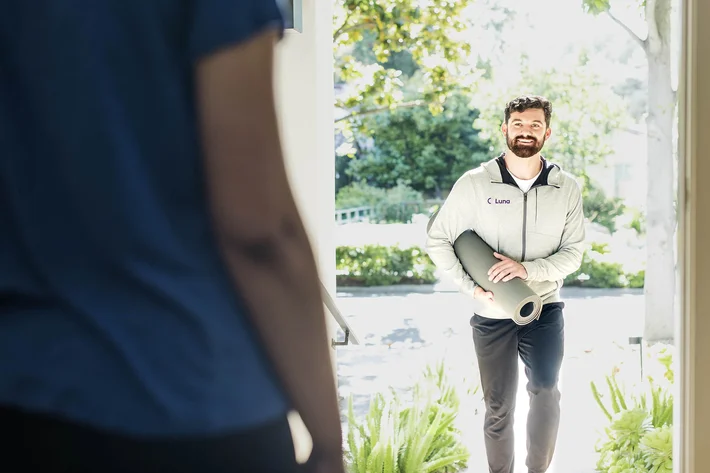
Meet with the best heel pain physical therapists in Weston, Florida
Weston, Florida, Luna employs physical therapists with expertise in the treatment of patients with heel pain. With a focus on identifying and treating the underlying causes of heel pain, our PTs formulate treatment programs designed to reduce discomfort and restore mobility.
Best of all, with Luna, patients can receive physical therapy for heel pain wherever it’s most convenient — at the gym, at the office, or even in the comfort of their own homes. Our physical therapists come to you — it’s physical therapy, delivered.

What is heel pain?
Because feet absorb a great amount of pressure and stress every day, it’s not unusual for patients to experience heel pain. Typically, heel pain can resolve on its own with enough rest; however, because the pain tends to develop gradually, patients often fail to recognize when to rest a sore heel. With continued (over)use, a sore heel can become chronic.
Heel pain can generally be grouped into two categories: pain beneath the heel and pain behind the heel. Pain beneath the heel is often caused by plantar fasciitis or a heel spur, though it can also be caused by bruising. Pain behind the heel is frequently attributed to inflammation of the Achilles tendon.
Source: OrthoInfo

What causes heel pain?
Heel pain can be attributed to a wide range of conditions. However, pain on the bottom of the heel is most often due to plantar fasciitis, while pain on the back of the heel is most commonly due to tendonitis in the Achilles.
Bursitis, arthritis, tarsal tunnel syndrome, heel spurs, bone tumors, and Achilles tendon ruptures are among the conditions that can potentially cause heel pain. Generally speaking, if heel pain is persistent or hinders normal motion, it’s advised that patients seek professional medical advice.
The most common causes of heel pain include:
- Plantar fasciitis
- Achilles tendonitis
- Bruising
- Arthritis
- Heel spurs
- Bursitis

















